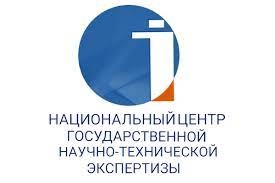BASICS FOR DESIGNING A DIGITAL SIMULATOR FOR ACADEMIC WRITING SKILLS FORMATION
https://doi.org/10.55491/2411-6076-2024-3-151-162
Abstract
In the educational space of Kazakhstan, the concept of academic writing has been developed recently. Researchers are exploring it from both practical and theoretical perspectives, and it is being introduced in new ways at higher educational institutions. However, today social networks are not only a means of communication and entertainment, they are also a learning platform that offers various educational applications for students. Looking from this point of view, it is too early to say that the problems of academic writing in our country have been completely solved. The purpose of our study is to create an electronic content of academic writing in the Kazakh language and prepare digital language simulators and dictionaries that teach academic writing skills. To achieve this goal, we conducted a number of empirical studies. In particular, our study consisted of several stages: the works of domestic and foreign scientists were differentiated in order to determine the theories and practices of academic writing in the educational space of Kazakhstan and methods and approaches for teaching academic skills in other countries. To determine its content, an empirical analysis of research papers’ types of three local higher educational institutions was carried out, and comparative analysis were also conducted between the bulletins of scientific periodicals. When analyzing the structure of writing an essay, which is also a type of scientific writing, criteria for its evaluation were proposed. Based on the collected data, the works of foreign authors who were looking for methods of using network devices in the field of education were studied, these data were grouped in order to create a digital language simulator for developing the skills of academic writing of Kazakh students.
About the Authors
M. ÖnerTurkey
Mustafa Öner - Doctor of Philosophy (PhD), Professor
Izmir
K. Moldabayeva
Kazakhstan
Karlygash Moldabayeva - Doctor of Philosophy (PhD)
Almaty
S. Оdanova
Kazakhstan
Sagirа Оdanova - Candidate of Philological Sciences, Рrofessor
Almaty
References
1. Awadeh, O. (2020) The Role of Social Media in Improving the Academic English Writing Skills of Arab Students. Journal of Content, Community and Communication, Vol.12, No.6, http://dx.doi.org/10.31620/JCCC.12.20/11 (in English)
2. Dinaeva, B.B., Sapina, S.M., (2016) Akademijalyq sauattylyqtyng teorijalyq zhane praktikalyq negіzderі. Oqu quraly. Astana, 74 b. [Dinayeva, B.B., Sapina, S.M. (2016) Theoretical and practical bases of academic literacy. Textbook. Astana, 74 p.] (in Kazakh).
3. Green, B., Beavis, C. (2012) Literacy in 3D: An Integrated Perspective in Theory and Practice. Australian Council for Educational Research (ACER). Vol.1. N 1. P. 220-225. (in English)
4. Hasanuddin, D., Emzir, E., & Akhadiah, S. (2019). Improving Students’ Scientific Writing Ability through Blended learning-Based Collaborative Learning. International Journal of Emerging Technologies in Learning (iJET), 14(20), pp. 34– 43. https://doi.org/10.3991/ijet.v14i20.11457 (in English)
5. Khalid, Souss (2020) Web-based Learning: Characteristics, Practices, Challenges and Recommendations. International Journal of Science and Research (IJSR). Vol. 9. N 3. P. 943-956 (in English).
6. Korotkina, I.B. (2018) Modeli obuchenija akademicheskomu pis’mu: uchebnoe posobie dlja vuzov. Moskva: izdatel`stvo Jurait, 219 s. [Korotkina, I.B. (2018) Models of teaching academic writing: a textbook for universities. Moscow: Yurait Publishing House, 219 p.] (in Russian)
7. Lin, M.-H., Chen, H.-Ch., Liu, K.-Sh. (2017) A Study of the Effects of Digital Learning on Learning Motivation and Learning Outcome. Eurasia Journal of Mathematics, Science and Technology Education, 13(7). DOI:10.12973/eurasia.2017.00744a (in English)
8. Official website of Kazakh national woman teacher training university. Almaty, Kazakhstan, https://kazmkpu.kz/en/
9. Official website of Al-Farabi Kazakh National University. Almaty, Kazakhstan, https://www.kaznu.kz/ru/
10. Official website of Almaty University of Power Engineering and Telecommunications. Almaty, Kazakhstan, https://aues.edu.kz/en/site/
11. Ospanov, E., (2020) Akademijalyq zhazylym negіzderі. Oqu quraly. Almaty: Ekonomiks. 120 b. [Ospanov, Y. (2020) Academic Subscription Basics. Textbook. Almaty, 74 p.] (in Kazakh).
12. Sari, Y. I., Sumarmi., Utomo, D. H., & Astina, I K. (2021). The Effect of Problem Based Learning on Problem Solving and Scientific Writing Skills. International Journal of Instruction, 14(2), 11-26. https://doi.org/10.29333/iji.2021.1422a (in English)
13. Sergio Alonso, Lopera Medina (2019) Effects of Reading Strategy and Dictionary. Folios. N. 50. P. 127-138 (in English).
14. Sharif, A., Zainuddin, S. (2017) Students' Perceptions of Their Reflective Essay Writing Experience and Teacher Feedback Comments. Indonesian Journal of Applied Linguistics, Vol. 6 No. 2, pp. 204-212. doi: dx.doi.org/10.17509/ijal.v6i2.4845 (in English)
15. Turmudi, D. (2017) Rethinking academic essay writing: selected genres in comparison. Premise: Journal of English Education and Applied Linguistics. Vol. 6. N.2. P. 119-138. (in English)
Review
For citations:
Öner M., Moldabayeva K., Оdanova S. BASICS FOR DESIGNING A DIGITAL SIMULATOR FOR ACADEMIC WRITING SKILLS FORMATION. Tiltanym. 2024;(3):151-162. https://doi.org/10.55491/2411-6076-2024-3-151-162
















